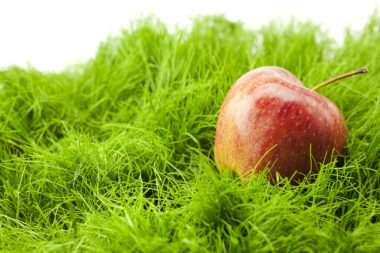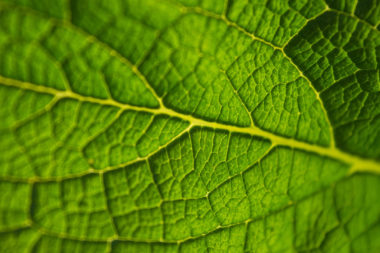

Synthetic or natural vitamin C?
Ascorbic acid is an organic acid that was discovered in the 1920s by Albert von Szent Györgyi, who extracted it from peppers. He was later awarded the Nobel Prize in 1937 for his discovery of ascorbic acid and its biological functions. Ascorbic acid is the chemical name, and vitamin C is the more common name, just as thiamine is the name for vitamin B1, folic acid is the name for vitamin B9, cholecalciferol is the name for vitamin D3, and so on.
These chemical compounds can be synthesized chemically “outside the body,” including as dietary supplements. In most mammals, including humans, ascorbic acid is synthesized from glucose in the liver, but unfortunately, humans lack a functional enzyme in this synthesis chain. Plants can also synthesize ascorbic acid from glucose, and some plants produce more than others, but how much they produce depends largely on sunlight and soil. Therefore, tables of vitamin C content are only a guideline.
Of course, nutrient intake through fresh organic food is the absolute best. Unfortunately, today it’s difficult to get many of the nutrients we need through food. The statement that “we get all the nutrients we need with a varied diet” is unfortunately a myth for the vast majority of us, and when it comes to vitamin C, it’s practically impossible as we become sick or stressed.
What is usually meant by natural vitamin C is that when we eat it through vegetables and fruits, we get a compound of ascorbic acid and other antioxidants found in plants, bioflavonoids, carotenes, xanthophylls, etc. These work together with ascorbic acid and are needed for effective functioning in the body. That’s why many call it “whole” vitamin C. For that reason, many vitamin C supplements are complemented with things like rose hips and various flavonoids. It’s always important to eat plenty of raw vegetables, for example, peppers and cabbage contain a lot of vitamin C. It’s also important not to eat glucose-rich food together with vitamin C supplements, as they compete for the same transport pathways. Also, remember that vitamin C easily oxidizes with oxygen during any form of processing and cooking, and is destroyed by heat! This applies even to ascorbic acid in powder form, it’s important to seal the package and not mix a solution that is left standing!
It is difficult to get such large amounts of vitamin C through natural foods alone, and supplements are often necessary, especially when one is sick. All research and trials on vitamin C, whether oral or intravenous, have been conducted with synthetic ascorbic acid, so the results and effects presented are those of synthetic vitamin C.
Ascorbic acid is an extremely powerful antioxidant as it has two electrons to donate to free radicals, unlike many other antioxidants in the body that only have one electron. Ascorbate, which is neutralized ascorbic acid with Na or Mg (avoid Ca ascorbate), has only one electron to donate and is therefore “less effective” than pure ascorbic acid, but it is also less harsh on the stomach and does not erode teeth.
Thomas Levy, whom I often refer to and who does extensive research on vitamin C and magnesium, recommends around 5-12 g of vitamin C per day, spread out over at least 4 times, as a maintenance dose, and a greatly increased dose during periods of stress and illness. He believes that low doses below 2g/day may cause iron and copper, if present in excessive amounts, to steal electrons from ascorbic acid, making them act as prooxidants, reducing the effectiveness of vitamin C, and therefore one should increase their intake of vitamin C.



















































